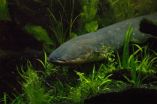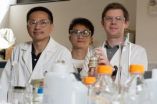(Press-News.org) A study of individuals who have been adopted has identified genetics as the dominant risk factor in 'familial' breast, prostate and colorectal cancers.
Researchers at the Centre for Primary Health Care Research at Lund University and Region Skåne in Sweden have presented the new research findings based on studies of population registers.
"The results of our study do not mean that an individual's lifestyle is not important for the individual's risk of developing cancer, but it suggests that the risk for the three most common types of cancer is dependent to a greater extent on genetics", said Bengt Zöller, a reader at Lund University who led the study.
The researchers studied adoptees born in Sweden in relation to both their biological parents and their adoptive parents. The Swedish multi-generation register and the cancer register were used to monitor 70 965 adopted men and women. They were all born between 1932 and 1969 and developed breast cancer, prostate cancer or colorectal cancer between the years 1958 and 2010. Using register studies, the researchers also looked at their adoptive and biological parents over the same period.
The risk of cancer in adoptees with at least one biological parent who had had the same cancer was 80� per cent higher for breast cancer, prostate cancer and colorectal cancer than for a control group without a biological parent with the same cancer. There was, however, no higher risk for individuals with adoptive parents affected by breast cancer, prostate cancer or colorectal cancer than for a control group. Individuals with a biological parent with cancer also developed the disease at a younger age than those without a biological parent with the same cancer. The age at which an individual developed cancer was not, however, affected by whether an adoptive parent had had the same cancer.
The results are an important indicator of the significance of hereditary factors for breast, prostate and colorectal cancer, according to Bengt Zöller.
"The occurrence of breast cancer, prostate cancer and colorectal cancer in biological parents is an important risk factor that should be included in patients' medical history and examinations. It is therefore important that doctors ask about family history so that they can decide whether further tests are needed", said Bengt Zöller.
INFORMATION:
Genetics dominant risk factor in common cancers
2014-06-27
ELSE PRESS RELEASES FROM THIS DATE:
Social pressure stops Facebook users recommending products on social media sites
2014-06-27
Facebook has more than 1.23 billion active users worldwide, with over 50 per cent of all users logging on to it on any given day. Most of Facebook's revenue comes from advertising and the company is looking at ways to make the site a more effective advertising platform for marketers. This includes selling ads that are more targeted to their users.
However, researchers have found that users of social media websites are less likely to use them to say positive things about their favourite products and services. Instead, they are more likely to express their opinions about ...
Scientists identify new pathogenic & protective microbes associated with severe diarrhea
2014-06-27
In a finding that may one day help control a major cause of death among children in developing countries, a team of researchers led by faculty from the University of Maryland, College Park and the University of Maryland School of Medicine has identified microorganisms that may trigger diarrheal disease and others that may protect against it. These microbes were not widely linked to the condition previously.
"We were able to identify interactions between microbiota that were not previously observed, and we think that some of those interactions may actually help prevent ...
Eco-friendly versatile nanocapsules developed
2014-06-26
The Institute for Basic Science (IBS) has announced that the Center for Self-assembly and Complexity have succeeded in developing a new technology that introduces metal nanoparticles on the surface of polymer nanocapsules made of cucurbit[6]uril.
The researchers have found that using polymer nanocapsules made of cucurbit[6]uril and metal salts can serve as a versatile platform where equal sized metal nanoparticles can be evenly distributed on the surface of the polymer nanocapsules. Cucurbit[6]uril has properties which strongly and selectively recognize organic and inorganic ...
Do people with autism struggle with driving?
2014-06-26
PHILADELPHIA (June 26, 2014)— In the first pilot study asking adults on the autism spectrum about their experiences with driving, researchers at Drexel University found significant differences in self-reported driving behaviors and perceptions of driving ability in comparison to non-autistic adults. As the population of adults with autism continues growing rapidly, the survey provides a first step toward identifying whether this population has unmet needs for educational supports to empower safe driving – a key element of independent functioning in many people's lives.
"Previous ...
Scientists find potential new use for cancer drug in gene therapy for blood disorders
2014-06-26
LA JOLLA, CA – June 26, 2014 – Scientists working to make gene therapy a reality have solved a major hurdle: how to bypass a blood stem cell's natural defenses and efficiently insert disease-fighting genes into the cell's genome.
In a new study led by Associate Professor Bruce Torbett at The Scripps Research Institute (TSRI), a team of researchers report that the drug rapamycin, which is commonly used to slow cancer growth and prevent organ rejection, enables delivery of a therapeutic dose of genes to blood stem cells while preserving stem cell function.
These findings, ...
Awareness month spurs web searches for autism
2014-06-26
PHILADELPHIA (June 26, 2014)—Autism Awareness Month each April brings blue lights and puzzle shapes out to shine in many communities – but does it actually lead to increased autism awareness? According to a new analysis of web search trends by researchers at Drexel University, it does appear to drive an increase in Google searches for autism – by a third over searches in March in recent years.
Brian K. Lee, PhD, an assistant professor in the Drexel University School of Public Health and research fellow of the A.J. Drexel Autism Institute, was senior author of the study ...
New infections cause dormant viruses to reactivate
2014-06-26
GAINESVILLE, Fla. — The famous slogan is "A diamond is forever," but that phrase might be better suited to herpes: Unlike most viruses, which succumb to the immune system's attack, herpes remains in the body forever, lying in wait, sometimes reactivating years later.
Researchers have long wondered what causes herpes viruses — two strains of which are linked to cancer — to reactivate after remaining dormant once the initial infection resolves. Now a team of researchers, including two University of Florida scientists, has discovered that interactions with other infections ...
Fighting parasitic infection inadvertently unleashes dormant virus
2014-06-26
Signals from the immune system that help repel a common parasite inadvertently can cause a dormant viral infection to become active again, a new study shows.
Further research is necessary to understand the clinical significance of the finding, but researchers at Washington University School of Medicine in St. Louis said the study helps illustrate how complex interactions between infectious agents and the immune system have the potential to affect illness.
The results appear online June 26 in Science Express.
The scientists identified specific signals in mice that ...
Sequencing electric eel genome unlocks shocking secrets
2014-06-26
EAST LANSING, Mich. — For the first time, the genome of the electric eel has been sequenced. This discovery has revealed the secret of how fishes with electric organs have evolved six times in the history of life to produce electricity outside of their bodies.
The research, published in the current issue of Science, sheds light on the genetic blueprint used to evolve these complex, novel organs. It was co-led by Michigan State University, University of Wisconsin-Madison, University of Texas-Austin and the Systemix Institute.
"It's truly exciting to find that complex ...
Water-cleanup catalysts tackle biomass upgrading
2014-06-26
Rice University chemical engineer Michael Wong has spent a decade amassing evidence that palladium-gold nanoparticles are excellent catalysts for cleaning polluted water, but even he was surprised at how well the particles converted biodiesel waste into valuable chemicals.
Through dozens of studies, Wong's team focused on using the tiny metallic specks to break down carcinogenic and toxic compounds. But his latest study, which is available online and due for publication in an upcoming issue of the Royal Society of Chemistry's journal Chemical Science, examined whether ...





